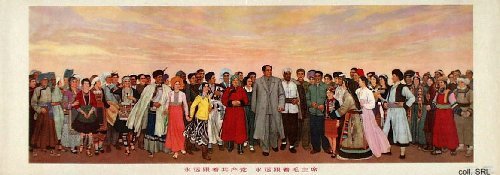
 This turn of events, almost plunging the PLA from its position of preeminence to one of supplicant, called for some strong images to make the message acceptable to the rank and file।
This turn of events, almost plunging the PLA from its position of preeminence to one of supplicant, called for some strong images to make the message acceptable to the rank and file।As a result of the Open Door policy and the early China hype it created abroad, the PLA was able to do some extensive window-shopping abroad, thus getting acquainted with the world's advanced weaponry. In order to earn funds to acquire such technology for domestic production, China became a major player in the world of conventional and nuclear arms sales. Joint ventures were another source of military technology. China's advantage in the world market is mainly because its technology is appropriate for less-sophisticated customers and that its level of prices is lower than that of other arms suppliers.

No comments:
Post a Comment